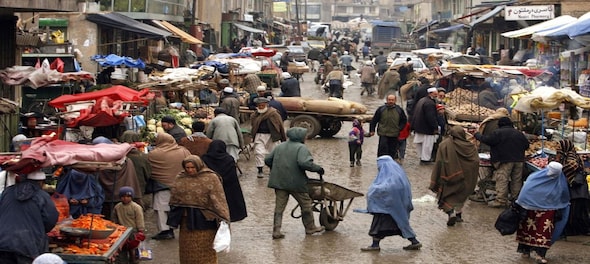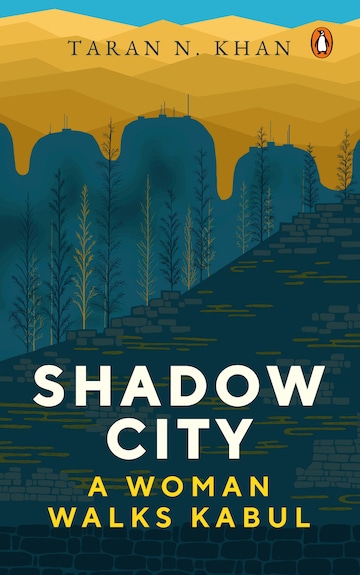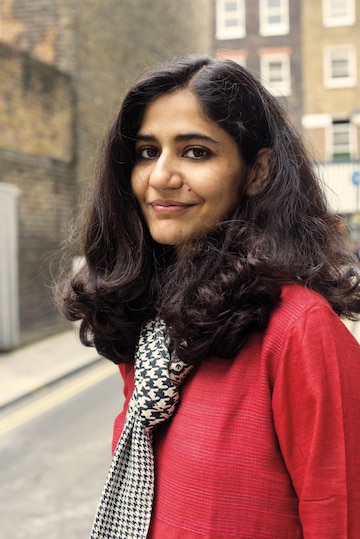
Taran N Khan’s new memoir, Shadow City: A Woman Walks Kabul (Penguin India, 2019) is her personal account of travelling alone on foot through war-torn Kabul and penning down her experiences. As a Muslim woman raised in small-town India who had to travel to Afghanistan over the course of her film-production career, Taran discovered that she had access to parts of Kabul uncharted by travellers before her.
We asked her to shed light on her most memorable experiences in the country, interesting aspects of the city and its people, and how fearful it was for her as a woman.
What was your most memorable experience working with filmmakers and media producers between 2006 to 2013 when you lived in Kabul? How did it change your perspective of Afghanistan and its people?
Each journey yielded its own special moments. In 2006, for instance, I worked with a group of media producers to make a series of short films. I remember their hunger to tell their stories and their excitement about sharing their work with a wider audience. Over the years, as I returned to Kabul, I met several young filmmakers who worked at full-time jobs and spent their free hours making short films or documentaries with whatever resources they could gather together.
Such instances helped me realise how many ways there were to see the city and the many stories it contained. It also revealed the resourcefulness of Kabul's creative community, and their commitment to their work, despite facing daunting odds.
Told from the perspective of a woman walking through Kabul, what are the different aspects of the city that you particularly want to share with readers?
The perspective of the book is one of intimacy and each of the chapters explores different spaces and different themes. One of the sections I particularly enjoyed writing was about wandering through the city’s bookshops and also venturing into its public library and seeing the old manuscripts that link Kabul to its literary history. (One of the anecdotes in the book is about the bookseller behind The Bookseller of Kabul, who sued Åsne Seierstad for her portrayal of him and then published the rebuttal which he displays proudly in his shop window.)
 Taran Khan's book 'Shadow City.
Taran Khan's book 'Shadow City.What was it like making films in a country where even cinema halls have been damaged?
Even though there are few cinema halls in the city, films are a big part of life in Kabul. There were CDs and DVDs sold widely across the city, and images of Bollywood stars were displayed on beauty salons and gyms. Over time, I realised that there was a range of films being produced in Kabul.
These included popular fare, as well as more experimental work by young filmmakers – many of whom had grown up as part of refugee communities abroad, and had returned to a city they did not know well, but considered home. They explored the city by making films there.
In your research, what were the trends or startling realities you found about love and marriage in Kabul?
It was interesting to see the codes and secret signs through which love and romance played out in Kabul – some of which seemed quite familiar, similar to what I had seen in India. Also like in India, wedding celebrations in Kabul tended to be quite lavish, with large numbers of guests invited to the festivities.
After 2001, a number of wedding halls sprang up across the city to host these celebrations. These venues were very opulent and expensive. Often people ended up taking large loans and going into debt to be able to pay for these ceremonies.
How would you compare Kabul with other Asian cities you have lived in or visited?
I don’t think this is a comparison I could make, as Kabul has faced a very different history from other places I have lived in. However, I did find a feeling of ease and welcome there as an Indian, thanks to our shared cultural connections.
 Taran N. Khan.
Taran N. Khan.Since you were told never to walk in Kabul, was it intimidating for you, especially as a woman?
There was a constant awareness that things can change very quickly – that a situation can escalate from normalcy to insecurity quite rapidly. But within this reality, I found that people tried to continue with their lives and their work as far as possible. I was fortunate in having people around me who always looked out for me, and guided my steps.
First Published: Jan 16, 2020 6:37 PM IST
Check out our in-depth Market Coverage, Business News & get real-time Stock Market Updates on CNBC-TV18. Also, Watch our channels CNBC-TV18, CNBC Awaaz and CNBC Bajar Live on-the-go!


Prajwal Revanna's father in custody for alleged kidnapping and sexual abuse
May 4, 2024 7:53 PM
Delhi, Indore, Surat and Banswara — why these are the most challenging domains for Congress internally
May 4, 2024 1:53 PM
Congress nominee from Puri Lok Sabha seat withdraws, citing no funds from party
May 4, 2024 12:00 PM
Lok Sabha Polls '24 | Rahul Gandhi in Rae Bareli, why not Amethi
May 4, 2024 9:43 AM

